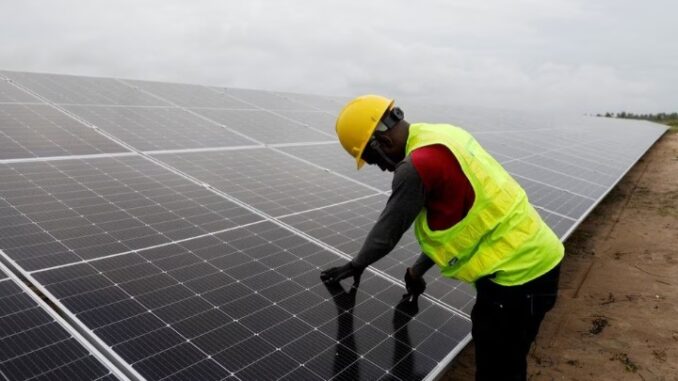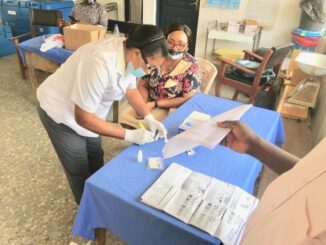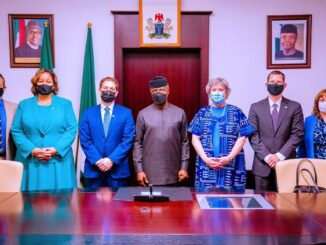
The World Bank is aiming to help fund the construction of 1,000 mini solar power grids in Africa’s biggest economy Nigeria in partnership with the government and private sector, the lender’s president Ajay Banga has said.
Nigeria, with a population of more than 200 million people, has installed a power generation capacity of 12,500 megawatts (MW) but produces a fraction of that, leaving millions of households and businesses reliant on petrol and diesel generators.
Mini-grids, made up of small-scale electricity generating units, typically range in size from a few kilowatts to up to 10 MW, enough to power some 200 households.
Speaking during a visit to a mini-grid site on the outskirts of the capital Abuja, Banga told reporters that nearly 150 mini-grids had been built, partly funded by the World Bank, to bring power to communities without access to electricity.
“We are putting another 300 in, but our ambition with the government is to go all the way to 1,000. We’re talking about hundreds of millions of dollars that are being invested,” said Banga, without giving a timeline.
ALSO READ: Clean energy: US Supports Solar Power Naija creating 250,000 new jobs
“Now the idea is not for the World Bank to be the only person putting the money. We put part of the money like a subsidy.”
World Bank data shows that in sub-Saharan Africa, 568 million people still lack access to electricity. Globally, nearly 8 out of 10 people without electricity live in Africa, Reuters said.




